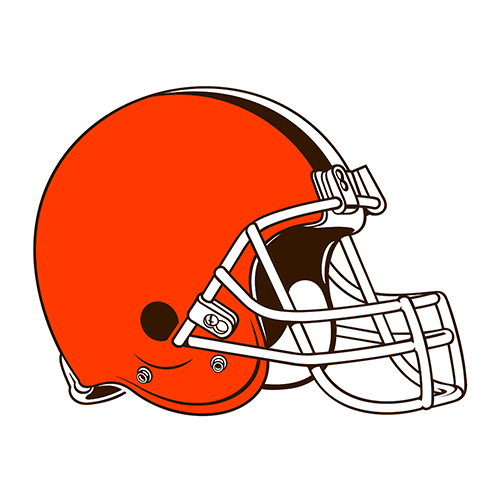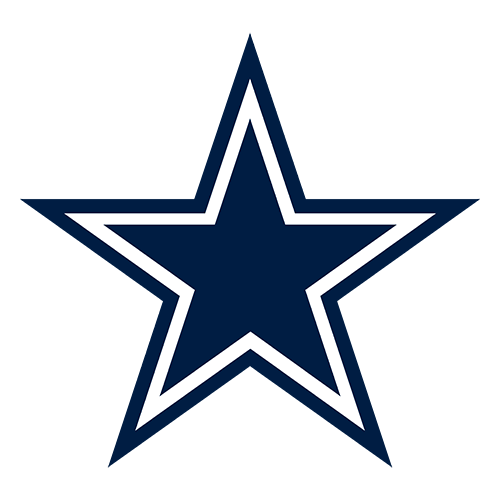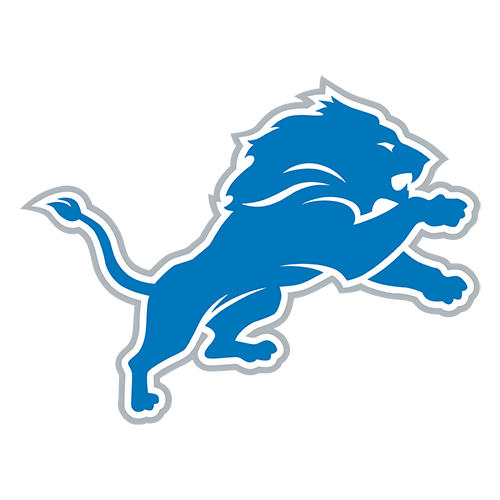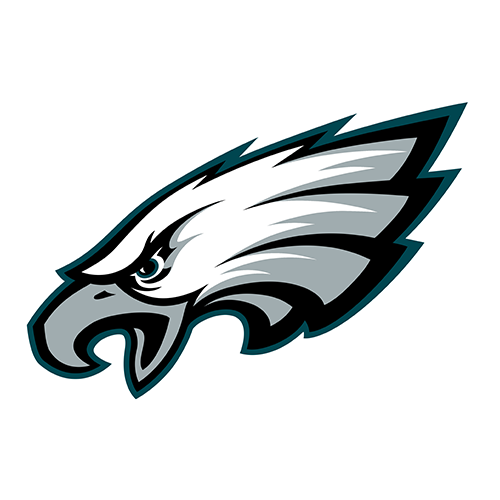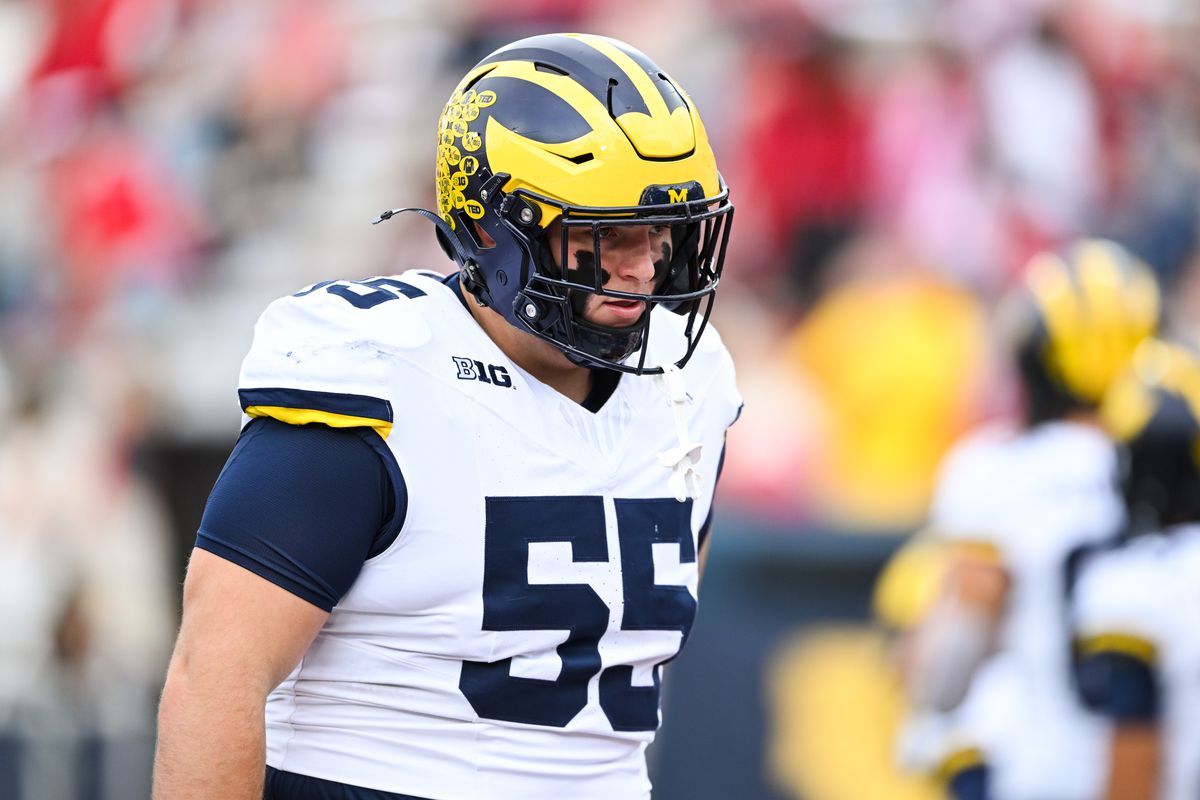
Photo by James Black/Icon Sportswire via Getty Images
The Dallas Cowboys need a defensive tackle at some point in the draft so knowing these guys will be crucial from the team’s scouting department. We continue to dive in our top positional series and this time look at the top defensive tackles in this year’s draft, giving a quick description of their best and worst attribute.
Mason Graham (Michigan)
Best – Quickness
Snap anticipation, burst, speed, and agility. Mason’s exceptional combination of quickness and technical pass rush skills makes him a disruptive force on the defensive line. His wrestling background contributes to his balance and hand usage, allowing him to effectively control offensive linemen and penetrate the backfield. Graham’s ability to generate pressure as both a run defender and pass rusher, despite not having prototypical size, sets him apart as a top prospect in this year’s draft at a top-5 prospect.
Worst – Size
At 6-foot-3 and 296 pounds, Graham is considered slightly undersized for an NFL defensive tackle. His arm length, which is coming in at 32”, is also shorter than ideal. This can make it challenging for Graham to disengage from blocks against larger, longer-armed offensive linemen.
Kenneth Grant (Michigan)
Best – Power
Grant’s elite trait is his exceptional power. Standing at 6-foot-4 and weighing over 330 pounds, he possesses the physical dominance to anchor any defensive line and effectively occupy multiple blockers. Despite his substantial frame, Grant exhibits a remarkable explosive first step, allowing him to penetrate gaps and disrupt plays in the backfield. His ability to maintain control at the point of attack with his brute force and strength makes him a formidable run-stopper, and this will help him contribute on any defensive front.
Worst – Pad Level
Despite his elite size and strength, Grant often rises too high out of his stance when rushing the passer. This high pad level reduces his leverage and power, making it easier for offensive linemen to neutralize his bull rush and control him. It limits his effectiveness as a pass rusher and prevents him from fully capitalizing on his athletic gifts in obvious passing situations. Lowest man wins in the NFL, Grant is often the highest.
Walter Nolen (Ole Miss)
Best – Explosiveness
Nolen’s greatest trait is his exceptional first-step explosiveness. This quick initial movement allows him to penetrate offensive lines rapidly, disrupting plays in the backfield and applying immediate pressure on quarterbacks. His combination of speed and power makes him a formidable presence on the defensive line.
Worst – Pad Level Consistency
Nolen’s most notable weakness is his inconsistent pad level. This deteriorates and becomes more obvious as the game continues and Nolen gets more fatigued. Unfortunately, Nolen has a tendency to play too upright, which allows offensive linemen to gain leverage and control the point of attack. This chink in his armor shows up in both pass-rushing and run defense situations as his motor cools.
Derrick Harmon (Oregon)
Best – Core Strength
Harmon’s elite trait is his exceptional upper body strength which he uses effectively to be a disruptive force along the defensive line during all phases of the game. Standing at 6-foot-4 and weighing 313 pounds, Harmon possesses a rare blend of physical attributes that make him a formidable opponent for offensive linemen. His impressive upper body strength and core stability allow him to effectively anchor against the run and collapse the pocket during pass-rushing situations, and he does this at an NFL level already.
Worst – Pass Rush Technique
Despite possessing an ideal blend of size and strength for a defensive tackle, Harmon can sometimes struggle to consistently execute proper hand placement and maintain effective leverage in pass rush situations. This inconsistency means that he misjudges angles or relies too heavily on his raw athleticism rather than using refined technique, which limits his ability to reliably defeat NFL-caliber blockers in passing situations.
Darius Alexander (Toledo)
Best – Explosiveness
Much like Walter Nolen, Alexander also displays an elite ability to rapidly accelerate and disrupt offensive plays immediately after the snap. This makes him a disruptive presence in both run support and pass-rushing situations. This quick burst of speed allows him to close gaps effectively, challenge blockers, and force turnovers in the backfield.
Worst – Consistent Attack
While Alexander is highly effective at creating burst off the line, but he struggles to keep that intensity sustained as the play develops. Once his initial burst fades, offensive blockers often have time to adjust their schemes, reducing his overall disruptive impact. In other words, his challenge lies in transitioning from that explosive start into a consistently controlled and impactful performance for the entire play.
Alfred Collins (Texas)
Best – Run Defense
Collins distinguishes himself with disciplined gap control and a powerful drive against offensive linemen that makes him particularly effective against the run. He reads plays quickly, positions himself well to disrupt running lanes, and uses his strength and leverage to fill gaps and force runners off their intended paths. His ability to remain low, maintain a solid base, and deliver decisive, hard-hitting tackles minimizes the effectiveness of the opposing run game, making him a key asset in run defense.
Worst – Pass Rush
Collins is a pure run-stopping nose tackle and struggles with any sort of pass rushing skills. This narrow focus can make his game predictable. When facing offensive linemen who adjust or quickly mirror his moves, Collins struggles to generate consistent pressure in any passing situation. Diversifying his technique with a wider array of pass-rushing moves would help him become a more balanced and versatile defender on the field.
Tyleik Williams (Ohio State)
Best – Hand Technique
Williams has demonstrated a refined knack at being so effective in run defense. His ability to diagnose plays quickly, lock onto his gap responsibilities, and deliver decisive, physical stops makes him a cornerstone of the defense. Rather than relying solely on explosiveness, he excels in using proper hand technique and leverage to control the line of scrimmage, forcing running lanes to collapse and limiting the opponent’s ground game. This disciplined approach not only disrupts the flow of the offense but also sets the tone for the defense overall.
Worst – Pass Rush Arsenal
Williams’ game predominantly relies on his strengths in the run game. His effectiveness on passing downs with his pass rush is a little too predictable, as he lacks a diverse array of pass-rushing moves. His reliance on power and run-stopping instincts can make it challenging for him to adapt against quicker offensive linemen in pass-rushing situations, slightly curtailing his overall impact on the passing side of the game.
T.J. Sanders (South Carolina)
Best – Pass Rush Moves
Over time, Sanders has developed quite the set of diverse pass-rush techniques. He frequently employs a two-hand swipe move to clear blockers and penetrate the backfield, as well as a stutter-bull rush that combines a stutter step with a powerful drive to unbalance and overpower offensive linemen. Additionally, Sanders utilizes counter moves, transitioning to power tactics when his initial approach is countered, demonstrating his adaptability during plays. His violent and active hand usage further aids in disengaging from blockers and maintaining control at the line of scrimmage. And that spin move, it’s NFL ready.
Worst – Pad Level
Sanders plays with a high center of gravity, which can lead to issues when facing double teams. This elevated pad level allows offensive linemen to gain leverage, making it easier for them to displace him and compromise his position on the field. Additionally, this tendency can hinder his ability to anchor effectively at the point of attack, reducing his impact in run defense situations.
Omarr Norman-Lott (Tennessee)
Best – Motor
Norman-Lott’s has a relentless motor and high competitive toughness. He consistently hustles to make plays, often pursuing ball carriers 20 or more yards downfield. This tireless effort contributes significantly to his effectiveness as both a pass rusher and run defender.
Worst – Size
At 6-foot-2 and weighing 291 pounds, Norman-Lott’s frame is one of the smallest in this defensive tackle class. This size disadvantage becomes evident when defending against downhill runs directly at him, as he can struggle to hold his ground against larger offensive linemen and double-team blocks. If his run defense does not improve, he may be limited to a designated pass rusher role at the next level.
Deone Walker (Kentucky)
Best – Mass
Walker’s has an impressive combination of size, athleticism, and versatility on the defensive line. He towers in at 6-foot-7 and weighs an impressive 331 pounds, but with this insane amount of mass for a defender he also possesses remarkable agility, enabling him to disrupt plays consistently. His ability to play multiple positions along the line showcases his adaptability and skill set, making him a formidable presence on both run and pass plays.
Worst – Pad Level
It’s simple physics here. Walker’s height is both a strength and weakness and being such a tall human this leads to him playing with high pad level. This means he has leverage issues that can diminish his natural power and make him susceptible to double teams and combo blocks. Additionally, his conditioning has been a concern; he tends to wear down quickly due to draining his strength, becoming less effective during longer drives or when asked to chase plays. That has the knock on effect of exacerbating his rising pad level, which saps his strength, which in turn impacts his overall energy level (you get the cycle here).
